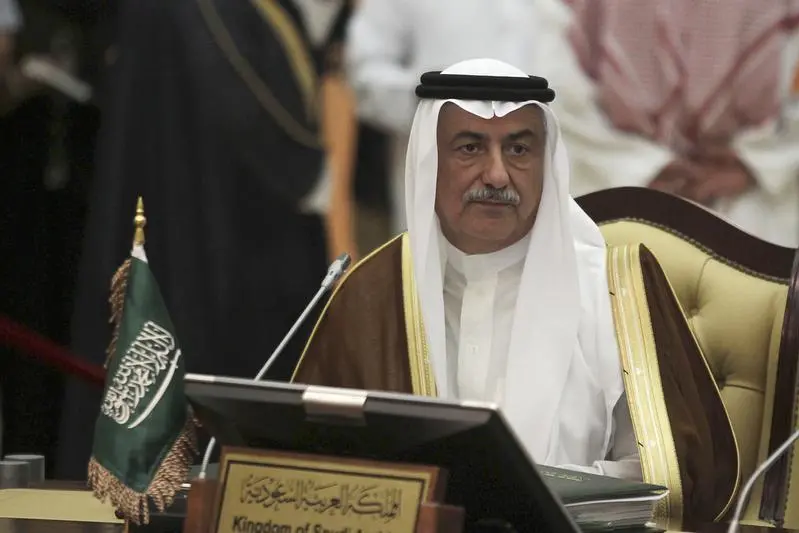PHOTO
DUBAI, Oct 21 (Reuters) - Saudi Arabia's government is looking at a wide range of possible adjustments to its spending and revenue policies to cope with the blow to its finances from cheap oil, a senior IMF official said.
The IMF estimates Riyadh faces a record budget deficit of well over $100 billion this year, amounting to 21.6 percent of gross domestic product, as low oil prices slash the revenues of the world's largest crude exporter.
"It is very clear that Saudi Arabia needs a sizeable, structured, multi-year fiscal adjustment," Masood Ahmed, Director of the IMF's Middle East and Central Asia Department, told Reuters in an interview.
He added that authorities were "evaluating all areas", but it was not yet clear how they would decide to balance the trade-offs involved in fiscal reforms.
The kingdom's Finance Minister Ibrahim Alassaf said last month that the government was cutting unnecessary expenses and delaying some projects, but he gave no details.
Ahmed said Saudi fiscal reforms could come in four main areas. One would be adjusting costly subsidies that keep domestic energy prices low; a second would be boosting non-oil revenues by, for example, introducing a value-added tax.
The government could also save money by improving the efficiency of public investment projects, and control current spending by rationalising the state sector wage bill.
Government announcements in the last few weeks suggest authorities are taking initial steps in at least two of these areas.
On Monday, the housing minister said the cabinet had submitted a proposal to tax undeveloped land to a government advisory body, while the cabinet said it had established a new body to improve the efficiency of government agencies.
(Reporting by Andrew Torchia; Editing by Ruth Pitchford) ((andrew.torchia@thomsonreuters.com; +9715 6681 7277; Reuters Messaging: andrew.torchia.thomsonreuters.com@reuters.net))
Keywords: SAUDI IMF/
The IMF estimates Riyadh faces a record budget deficit of well over $100 billion this year, amounting to 21.6 percent of gross domestic product, as low oil prices slash the revenues of the world's largest crude exporter.
"It is very clear that Saudi Arabia needs a sizeable, structured, multi-year fiscal adjustment," Masood Ahmed, Director of the IMF's Middle East and Central Asia Department, told Reuters in an interview.
He added that authorities were "evaluating all areas", but it was not yet clear how they would decide to balance the trade-offs involved in fiscal reforms.
The kingdom's Finance Minister Ibrahim Alassaf said last month that the government was cutting unnecessary expenses and delaying some projects, but he gave no details.
Ahmed said Saudi fiscal reforms could come in four main areas. One would be adjusting costly subsidies that keep domestic energy prices low; a second would be boosting non-oil revenues by, for example, introducing a value-added tax.
The government could also save money by improving the efficiency of public investment projects, and control current spending by rationalising the state sector wage bill.
Government announcements in the last few weeks suggest authorities are taking initial steps in at least two of these areas.
On Monday, the housing minister said the cabinet had submitted a proposal to tax undeveloped land to a government advisory body, while the cabinet said it had established a new body to improve the efficiency of government agencies.
(Reporting by Andrew Torchia; Editing by Ruth Pitchford) ((andrew.torchia@thomsonreuters.com; +9715 6681 7277; Reuters Messaging: andrew.torchia.thomsonreuters.com@reuters.net))
Keywords: SAUDI IMF/





















